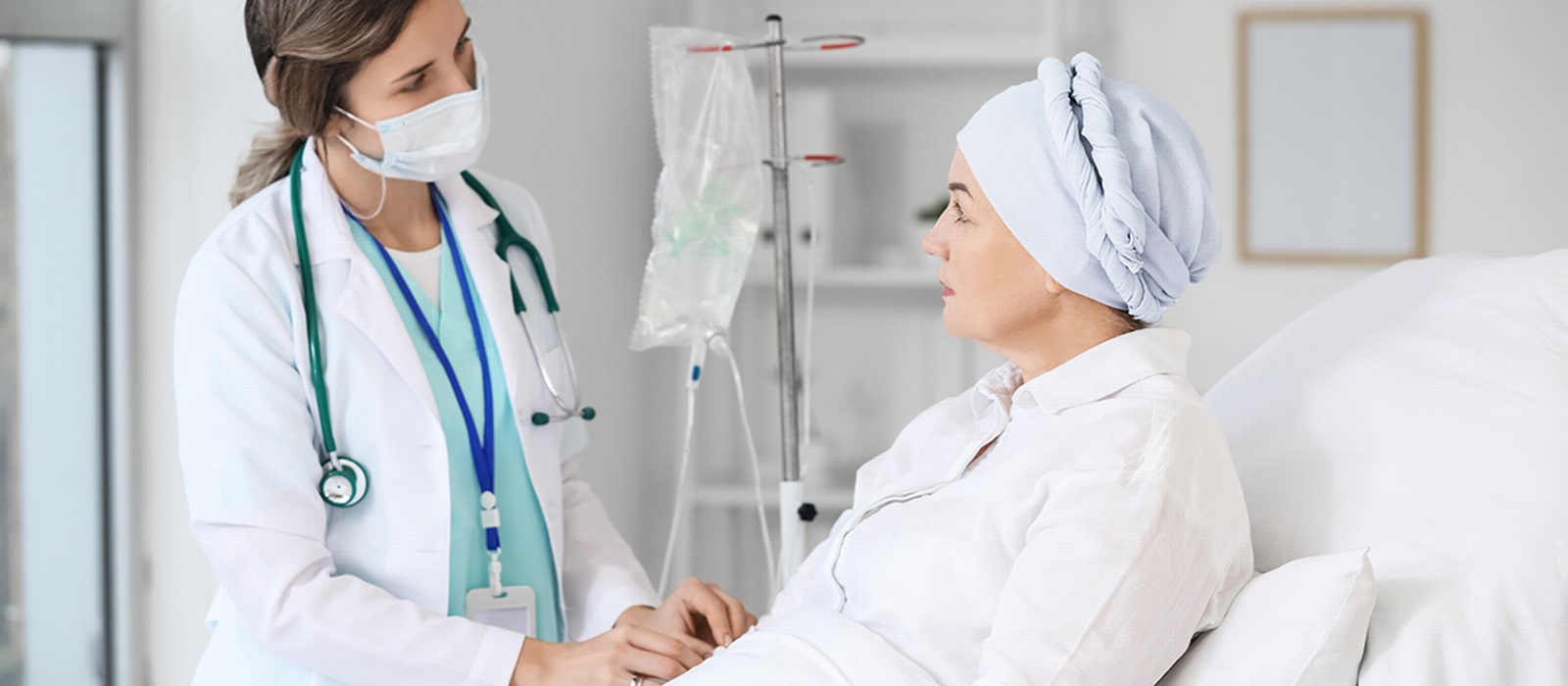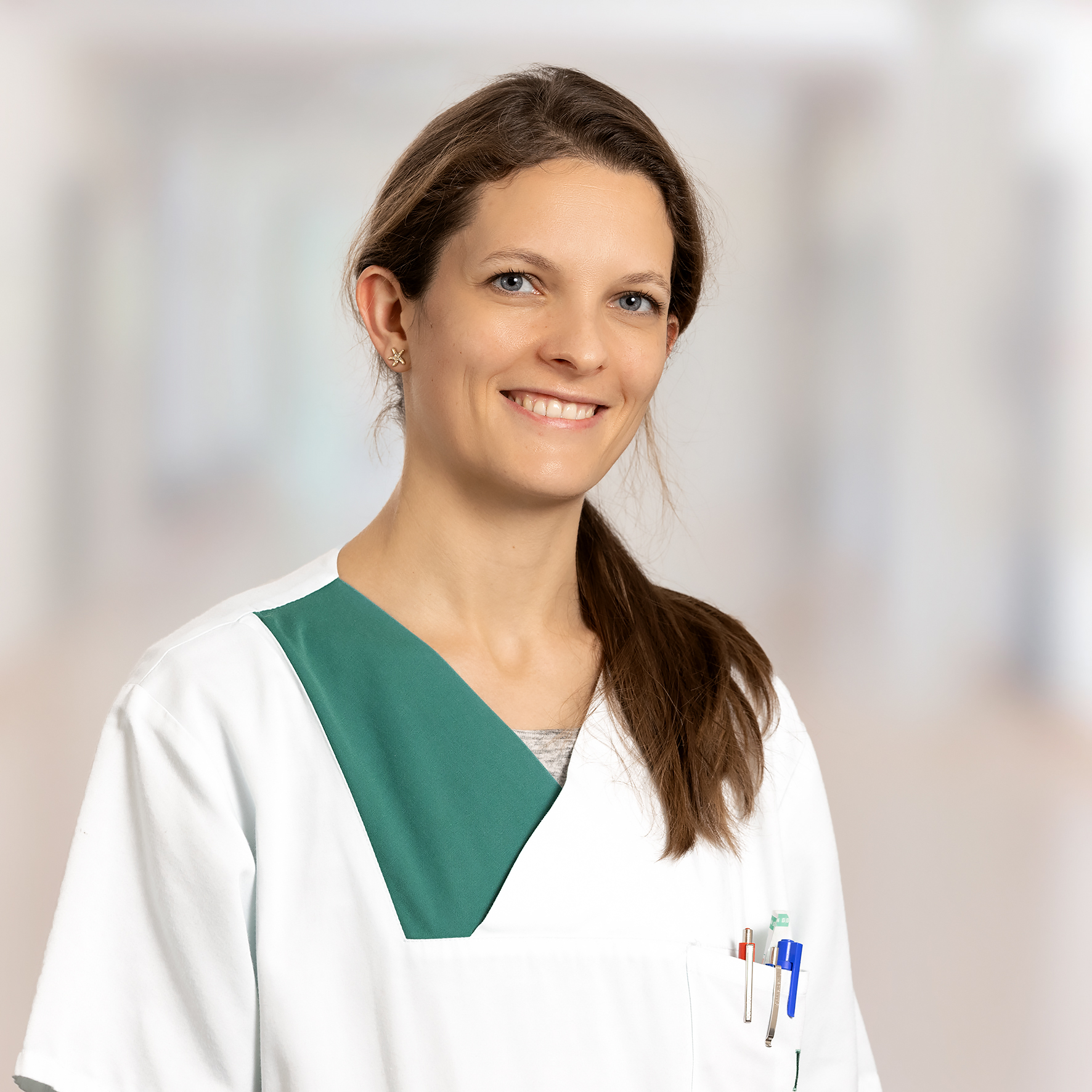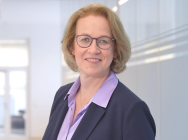

Medical professionals in the Department of Hematology and Cell Therapy at the Helios Hospital Berlin-Buch have long been using CAR-T cell therapy – one of the most innovative and effective cancer therapies currently available. In an interview with Fresenius editor Brigitte Baas, you can find out what Dr. Anna Ossami Saidy, a physician undertaking continuing education in this department, is currently researching – and read about how her work can improve the treatment of cancer patients and increase the chances of a cure.
(Published: July 2024)
Dr. Ossami Saidy, you are currently a physician undertaking continuing education in Berlin Buch. Please tell our readers what exactly it is you do here.
Dr. Ossami Saidy: I work as assistant resident doctor on the ward and am directly involved in the care of our inpatients. We treat patients who are receiving chemotherapy or immunotherapy as well as patients who need a stem cell transplantation or so-called CAR-T cell therapy. CAR-T cell therapy is a highly innovative process where we firstly collect T-immune cells from the patient’s blood. These are then genetically modified using viral vectors, enabling them to recognize tumor cells by means of new antigen receptors. The modified T-cells are then reinfused, ultimately eliminating the malignant cells. This process has significantly changed and enriched the treatment landscape for certain diseases.
In addition to immediate patient care, I also manage our trial office, where, among other things, I am responsible for organizational aspects of the clinical trials that are run there. In some of these trials, my role is that of principal investigator. In the studies where I am the principal investigator I manage the implementation and reporting side, too.
To what extent has CAR-T cell therapy already enriched the treatment landscape, as you say?
Dr. Ossami Saidy: In cases of diffuse large B-cell lymphoma, for example. For this aggressive lymphoma, CAR-T cells have been regularly used for some time now as the standard form of therapy in patients who experience relapse of the disease following the initial treatment. Compared to treatment options that were available in the past, this therapy provides a significantly better chance of achieving long-term remissions despite the relapse. CAR-T cells are also used in other types of lymphoma and in multiple myeloma, showing good results in patients with relapses.
What scientific matter are you personally working on at the moment?
Dr. Ossami Saidy: I am currently investigating whether we can also help a very specific patient population with the aforementioned CAR-T cell therapy – patients who have been diagnosed with lymphoma of the central nervous system (CNS). These patients have been excluded from most clinical CAR-T cell trials, which is why we have no prospective data on whether this treatment is even an effective option for them. However, it would be very good news for patients with these types of CNS lymphoma if CAR-T cell therapy could also be a successful treatment option, especially as these patients often have a very poor prognosis.
In the lymphoma working party of the European Blood and Marrow Transplantation Society, or EBMT, and in cooperation with the “GoCART Coalition,” we wanted to investigate the potential of CAR-T cell therapy for patients with CNS lymphoma by evaluating data from the EBMT’s large registry. Our analysis revealed that the results among patients with CNS lymphoma are comparable to those among patients without CNS infiltration – and that side effects are also on a similar level. Accordingly, we are also advocating CAR-T cell therapy for patients whose central nervous system is affected by lymphoma. We have already put this into practice at our center.

And for what exactly did you receive the first prize in the scientific poster session at the Helios Clinical Congress?
Dr. Ossami Saidy: For this retrospective data analysis of patients with CNS lymphoma who were treated with CAR-T cells.
Fresenius is committed to using the most innovative methods to treat people. To what extent will your research work in the Department of Hematology and Cell Therapy contribute to helping patients even more in the future by means of CAR-T therapy?
Dr. Ossami Saidy: We have already been able to present our work at several congresses in Europe as well as in the USA – at the annual meeting of the American Society of Hematology, for example. By doing so, we hope to transcend national borders by being able to draw attention to the fact that CAR-T cell therapy could be a promising therapeutic option for a group of patients for whom there is a real need for new treatment strategies. It would be great if our analysis could reduce existing barriers and ensure that patients with CNS lymphoma also gain easy access to CAR-T cell therapy.
When you think ahead to the work being done on your ward in five years’ time, how will medical professionals be treating the types of cancers that are particularly difficult to cure?
Dr. Ossami Saidy: I personally believe that we will keep on moving further away from classic forms of chemotherapy and that immunotherapies – involving antibody therapies and cell therapies– will play an ever greater role. Hopefully, this will be associated with better prospects of a cure for our patients – with fewer side effects and thus an improvement in their quality of life.
Contact
Helios Klinikum Berlin-Buch
Schwanebecker Chaussee 50
13125 Berlin
T +49 (0)30 94 01-0
Related links
CAR T cell therapy

